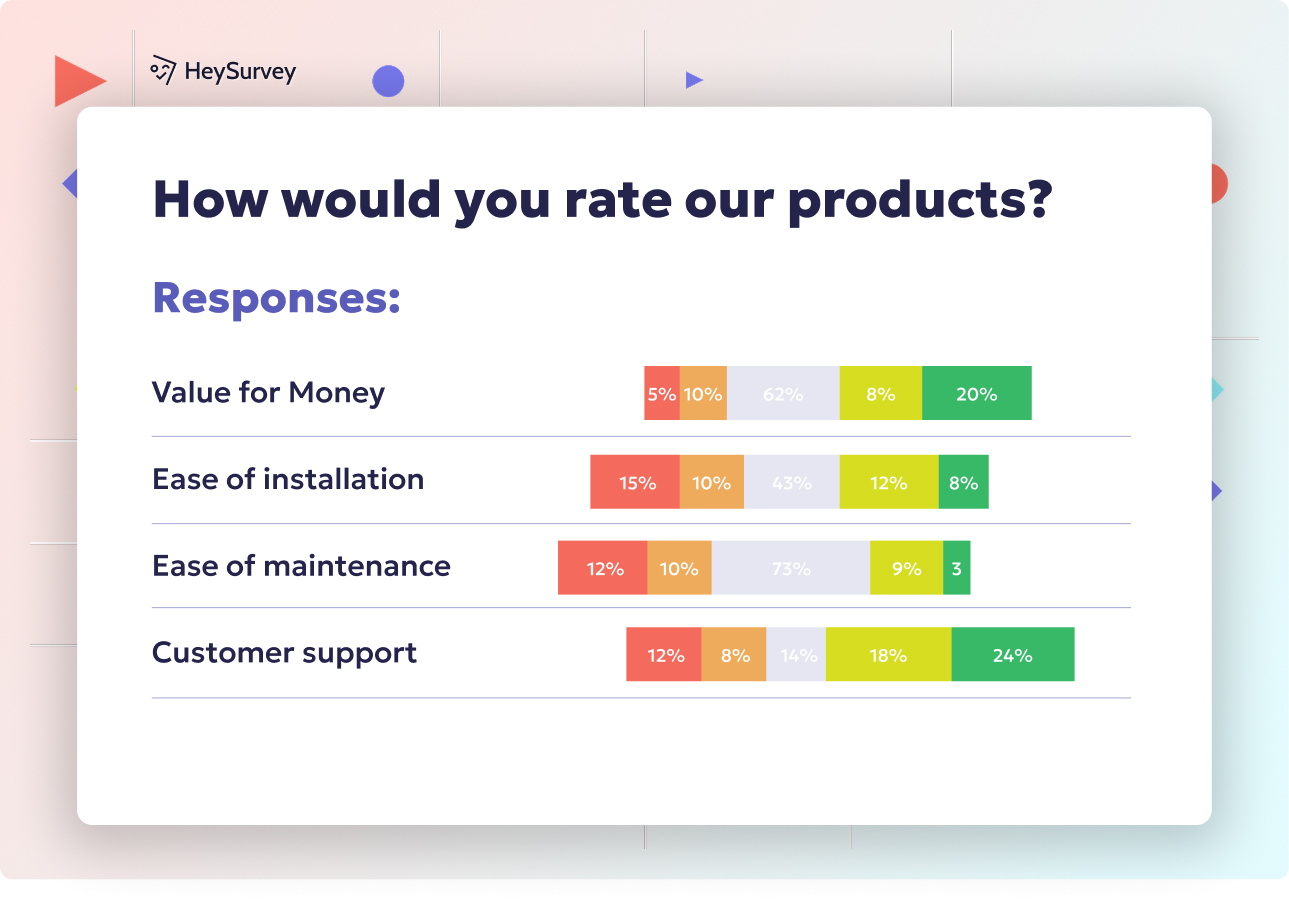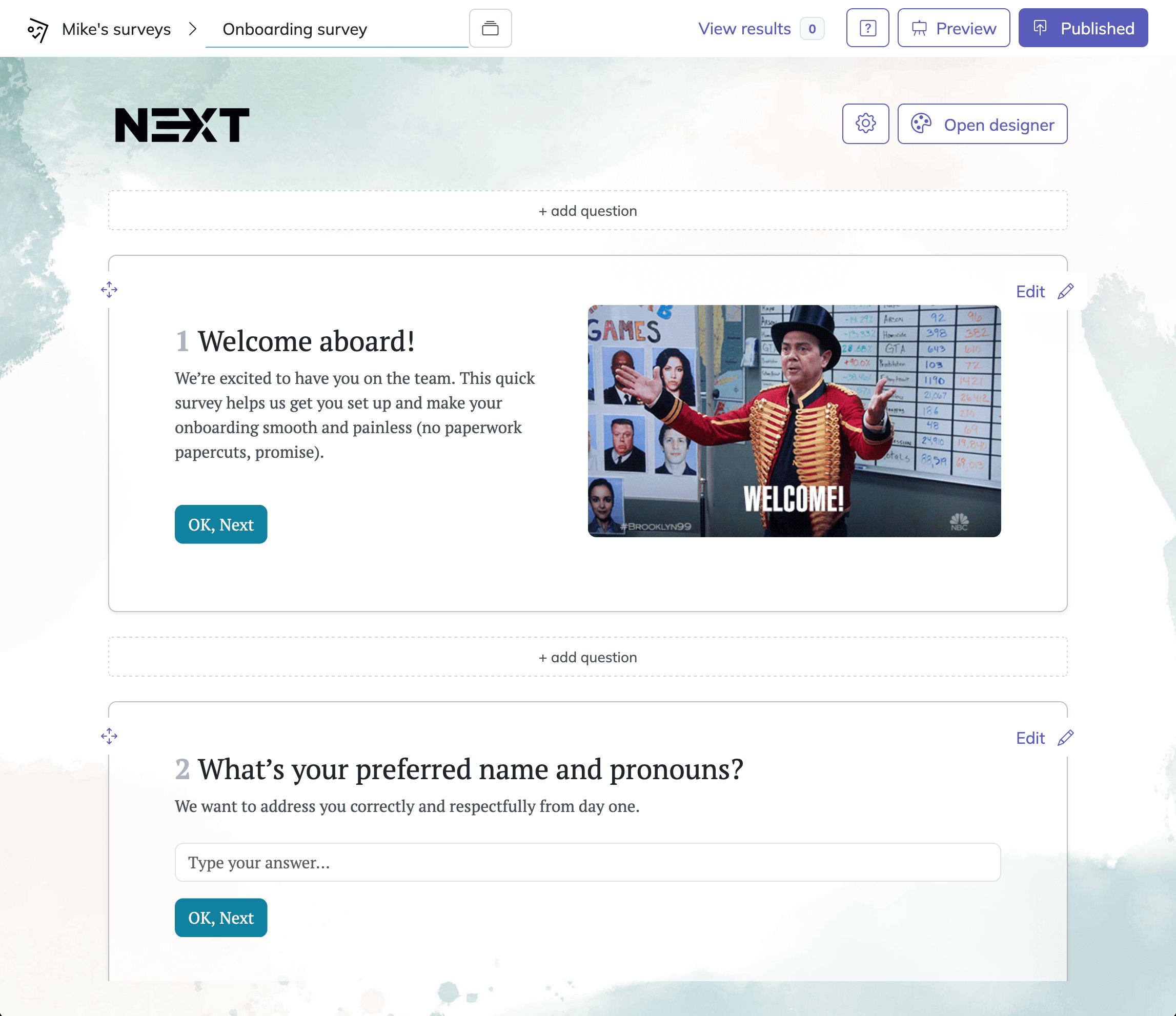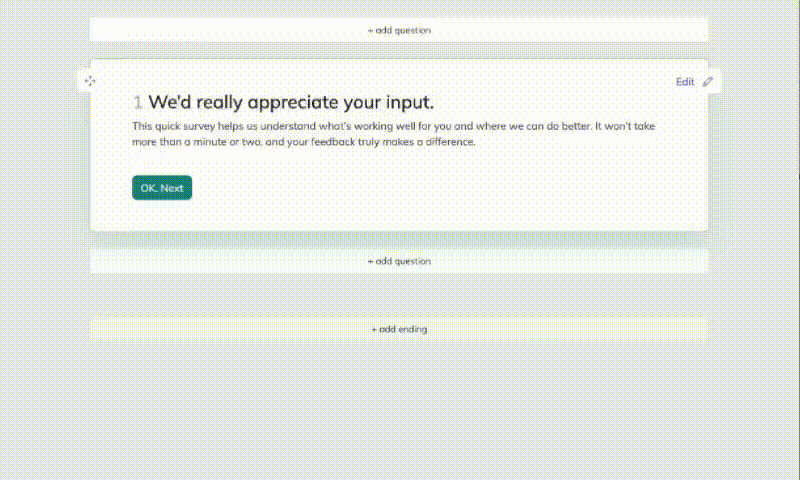32 Sports Survey Questions for Fan, Athlete & Event Insights
Discover 30+ expert sports survey questions covering fan engagement, athlete feedback, event experience, sponsorship, youth sports, and more.
The world of sports thrives in stadiums filled with cheers, in training sessions behind closed doors, and now, in the glow of dashboards brimming with data. These days, every coach, marketer, and team executive wants numbers that tell a story. Sports survey questions are quickly becoming the unsung MVPs for understanding not just who shows up, but why they care, complain, or celebrate. Whether you’re curious about fan engagement surveys, eager to improve athlete wellness, or chasing that elusive sponsorship ROI, the right athlete feedback questionnaires and event experience survey questions can put you ahead of the game.
Fan Engagement Surveys
Why & When to Use
Fan engagement surveys help teams break the huddle with their most important partners—fans! By getting direct input from ticket holders, social followers, and digital viewers, teams can find out what fuels loyalty. Want to know if your half-time show is a hit or why last season's attendance dipped? Just ask.
- Optimize marketing campaigns by knowing what content fans crave.
- Boost season-ticket retention with tailored loyalty rewards.
- Fine-tune content calendars by highlighting what “plays” well.
- Decide on perks for fan clubs or special events.
The best time to send these surveys is either pre-season, during a mid-season check-in, or right after a marketing campaign ends. It’s like a team timeout—just with a lot less yelling.
5 Sample Fan Engagement Questions
Which three team-related topics would you like to see more of on our social channels?
How likely are you to recommend attending our home games to a friend?
Rate your emotional connection to the team on a scale of 1–10.
Which game-day traditions matter most to you?
What would motivate you to renew your season tickets earlier?
Fan engagement surveys deliver the insights you need to boost the crowd’s energy—even if your mascot does most of the heavy lifting.
Regular fan engagement surveys enable sports teams to identify and address key areas for improvement, enhancing the overall game-day experience and boosting fan satisfaction. (relativeinsight.com)
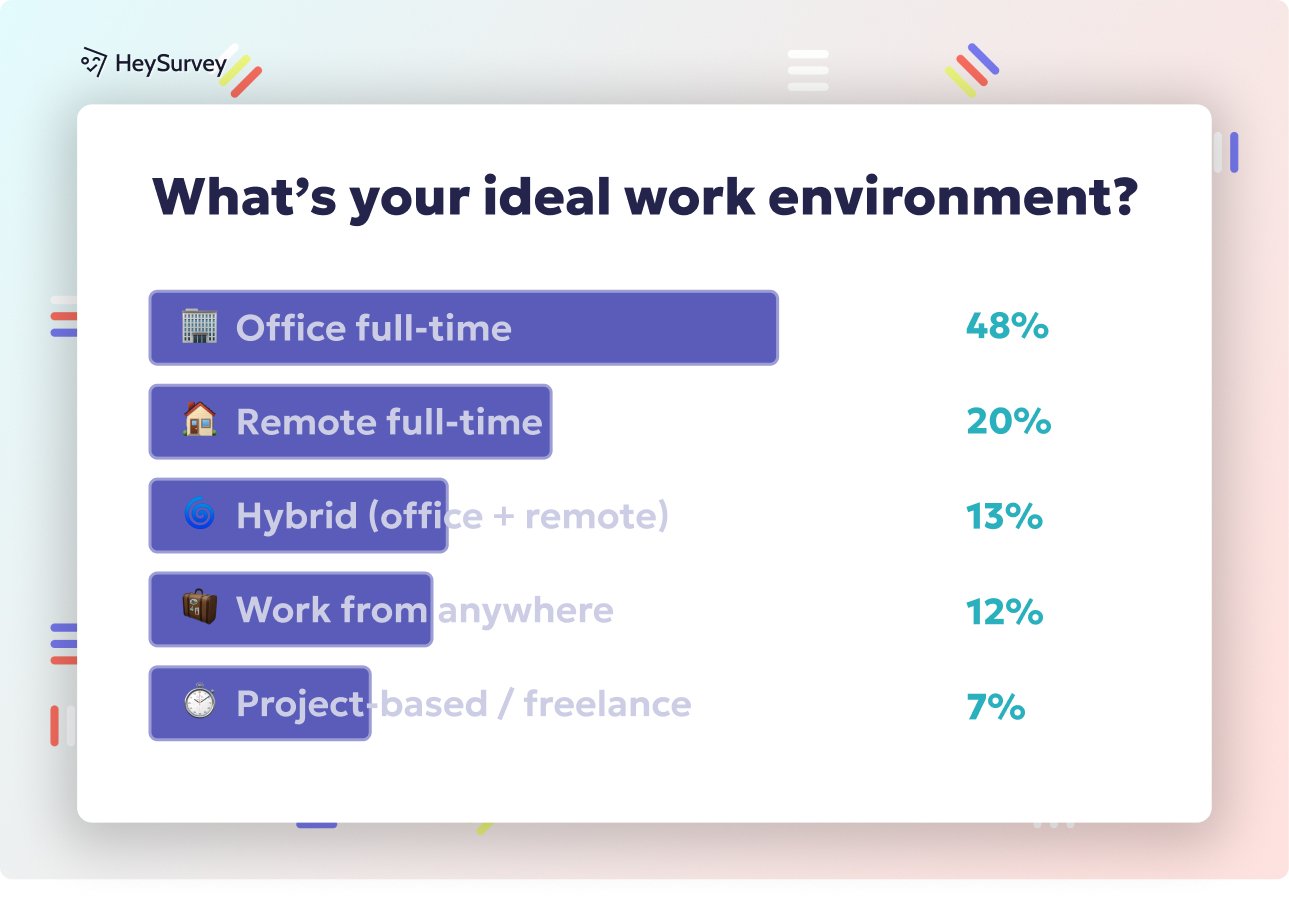
How to Create Your Sports Survey in 3 Easy Steps with HeySurvey
Ready to gather insights with your own sports survey questions but not sure where to start? HeySurvey makes it simple—even if you’re new to survey-building. Just follow these three easy steps, and you’ll have a professional, engaging survey live in no time!
Step 1: Create a New Survey
- Log in to HeySurvey or start without an account if you want to experiment first.
- Click “Create New Survey” and choose whether to start from scratch, use a pre-built sports-related template, or input your questions via text.
- Give your survey an internal name (so you can find it later) and hit Create.
This is your blank canvas—a place where your fan engagement or athlete feedback story begins.
Step 2: Add Questions
- Click the "Add Question" button at the top or between existing questions.
- Pick the type of question you want—whether it’s multiple choice, a scale rating, text input, or even image upload.
- Write your question, add descriptions if needed, and set whether it’s required.
- Use features like branching if you want to tailor the flow based on answers (e.g., different questions for youth parents vs. athletes).
- Don’t forget to include the sample questions relevant to your survey type, like those fan engagement or event experience questions we discussed.
Adding questions is like crafting your game plan: precision and strategy count!
Step 3: Publish Your Survey
- Preview your survey to check design, flow, and question clarity.
- Hit Publish to generate a shareable link or embed code.
- Share your survey with your fans, athletes, or community and start collecting responses immediately.
Publishing is your survey kickoff—the starting whistle for data collection!
Bonus Steps to Level Up Your Survey Game
- Apply Branding: Upload your team or organization logo to the survey header and customize colors and fonts via the Designer Sidebar—make it look as sharp as your jersey.
- Define Settings: Set start/end dates, response limits, or a custom “Thank You” redirect URL to manage your survey time frame and user experience.
- Branch Into Smart Paths: Use branching logic to create personalized question paths that adapt based on how respondents answer. It ensures everyone completes a survey that’s relevant to them.
Want to jump right in and see how easy it is? Click the button below to open a ready-made template and start editing your first sports survey today!
Event Experience Surveys
Why & When to Use
From the length of the concession line to the clarity of stadium signage, the live sports experience can make or break fan loyalty. Event experience surveys are the secret tool for turning a night at the ballpark into a five-star memory. They uncover every detail, from what snacks sell out first to which part of the in-stadium tech wows the crowd.
- Identify pain points so management knows what to fix first.
- Justify facility upgrades with real data instead of just wishful thinking.
- Bolster vendor negotiations with fan satisfaction stats.
These surveys are most effective when sent within 24–48 hours after an event—when the nachos are eaten but the memory of the queue is still fresh.
5 Sample Event Experience Questions
How satisfied were you with the queue times at concessions?
Rate the clarity of stadium signage for navigation.
Which in-stadium technology (Wi-Fi, mobile ordering, AR replays) enhanced your experience most?
Did you feel safe and secure during the event? Why or why not?
What single improvement would make you attend more games?
Collecting feedback while the cheers are still echoing helps teams perfect the game-day playbook for next time.
Event experience surveys are most effective when sent within 24–48 hours after an event, ensuring attendee feedback is fresh and actionable. (asaecenter.org)
Athlete Performance Feedback Surveys
Why & When to Use
Players are the heart of any team, so their perspective really counts. Athlete performance feedback surveys give athletes a voice about coaching styles, training intensity, and locker room vibes—without the awkwardness of a face-to-face chat. This approach helps teams spot issues early and nurture a thriving team culture.
- Foster open communication to keep athletes comfortable sharing honestly.
- Prevent burnout by balancing training loads with adequate recovery.
- Fine-tune training and coaching strategies for each athlete.
Use these surveys mid-season, after tough training camps, or once the season wraps up. The locker room—and team success—will be better for it.
5 Sample Athlete Feedback Questions
How effective are the current practice drills in preparing you for competition?
Rate the balance between physical load and recovery time.
Do you feel your feedback is valued by the coaching staff?
Which area of your game needs more individualized coaching?
How would you describe overall team morale this month?
Well-crafted questions help ensure athletes feel seen, heard, and ready to play their best—no benchwarming required.
Youth Sports Participation Surveys
Why & When to Use
It’s not just about the trophies at the youth level. For young athletes, parents want programs that deliver fun, growth, and plenty of high-fives. Youth sports participation surveys collect valuable insights for clubs and schools looking to design safer, more engaging experiences.
- Increase retention rates by understanding what hooks kids and keeps parents happy.
- Align coaching and programming with parental expectations.
- Make sure programs focus on safety and appropriate skill development.
Send these surveys at the season’s end, after camps, or whenever parents might be reflecting on what worked. A little feedback goes a long way, both on and off the field.
5 Sample Youth Participation Questions
What motivated your child to join our program?
How clear were the communication channels regarding schedules and updates?
Rate the emphasis placed on fun versus competition.
Did you feel your child was coached on proper injury prevention?
What additional resources would improve your child’s experience?
Solving problems before they lead to dropouts is the ultimate win in youth sports.
Financial constraints are a significant barrier to youth sports participation, with lower-income families reporting higher rates of non-participation due to costs. (rand.org)
Sports Market Research Surveys
Why & When to Use
Ready to make the next big move? Sports market research surveys help you figure out who’s watching, what they’re buying, and how they consume their favorite sports. Whether you’re launching new merchandise, negotiating a TV deal, or debating ticket prices, a well-timed survey saves guesswork.
- Validate product launches by measuring fan interest and willingness to pay.
- Choose the best broadcast or streaming partners for your audience.
- Adjust ticket pricing based on real fan demand—not just wishful thinking.
Ideal for pre-launch planning or annual benchmarking, these surveys are the scouting reports of the business side of sports.
5 Sample Market Research Questions
Which sports leagues do you follow most closely?
How much do you typically spend on team merchandise per season?
Which streaming platforms do you use to watch live sports?
Rank factors influencing your decision to attend live events (price, opponent, promotions, schedule).
How likely are you to purchase limited-edition collectibles?
Armed with answers, teams can expand their fan base and maximize every revenue play.
Sports Sponsorship & Branding Surveys
Why & When to Use
Sponsors are the lifeblood for many sports teams, but do fans really notice branded halftime games or sponsored content? Sports sponsorship & branding surveys offer a scorecard for every activation, helping teams prove value and keep sponsors cheering for more.
- Provide ROI metrics so sponsors know their money was well spent.
- Refine activations and campaigns based on actual fan recall and reaction.
- Build the case for renewal—or negotiate better deals—with hard data.
Surveys work well mid-season to catch ongoing perceptions and immediately after big campaigns for fresh feedback.
5 Sample Sponsorship Questions
Which sponsors do you associate most with our team after today’s game?
How did the halftime activation influence your opinion of the sponsor?
Rate the relevance of sponsored content on our social feeds.
How likely are you to purchase from a brand that supports our team?
What sponsorship benefits add value to your fan experience?
Every sponsorship dollar goes further when the return can be measured in real fan connection—not just logo exposure.
Community Impact & Economic Effect Surveys
Why & When to Use
Stadiums buzz with excitement, but what happens to the neighborhood when everyone goes home? Community impact & economic effect surveys help teams and organizers understand how sports activities ripple through the local area, from traffic headaches to rising revenue for small businesses.
- Secure permits and public funding with solid evidence of community benefit.
- Build goodwill with residents and policymakers by showing you listen.
- Quantify economic uplift from events big and small.
Send these surveys before and after major tournaments, or when pitching big infrastructure projects. The data can pave the way for smoother approvals and stronger local ties.
5 Sample Community Impact Questions
How do home games affect traffic and parking in your area?
Have you noticed increased revenue on game days?
Rate your support for future stadium expansions.
How well does the team’s community outreach address local needs?
What concerns do you have about hosting more large-scale sports events?
Sports aren’t just games—they’re catalysts for community growth (or the reason the pizza shop ran out of cheese).
Best Practices: Dos and Don’ts for Writing Sports Survey Questions
Getting the right answers starts with asking the right questions. Clarity reigns supreme—each question should focus on a single issue, in language that makes sense to a seventh grader or your grandma. If a respondent has to reread a question, you’ve probably fumbled.
Do use a mix of question formats: Likert scales for emotion, multiple choice for speed, and open-ended for creative feedback.
Don’t lead or bias your respondents. Steer clear of loaded or emotionally charged wording. “You enjoyed our amazing new seats, right?” will only get you surface-level responses.
Do time surveys well. Strike while the memory’s hot—24 to 48 hours after an event is ideal. Any later and people start forgetting the details that matter.
Don’t ignore how fans and athletes actually use your survey. Make everything thumb-friendly, add progress bars to assure folks they’re nearly done, and skip any tiny text.
Do A/B test your subject lines to get more people clicking in the first place. A boring “Feedback requested” will rarely beat a cheeky “Help us make next game legendary!”
Mix in synonyms like “sports questionnaire” or “athletic feedback form” to keep things fresh and relatable. Write as if your favorite player is on the other end—makes things more fun (and accurate).
Conclusion & Next Steps
Every survey type tackles unique questions in the modern sports world, from sharpening the fan experience to building bridges with neighbors. Customizing your approach lets you fill those all-important data gaps and take smarter action, season after season. Analyze the results, adjust your strategies, and keep asking better questions. Want to ace your next survey? Download a free sports survey template or start a trial with your favorite survey platform today!
Related Feedback Survey Surveys

30 Catering Survey Questions to Boost Customer Satisfaction
Discover 25 insightful catering survey questions to improve your services. Explore our expert-cra...
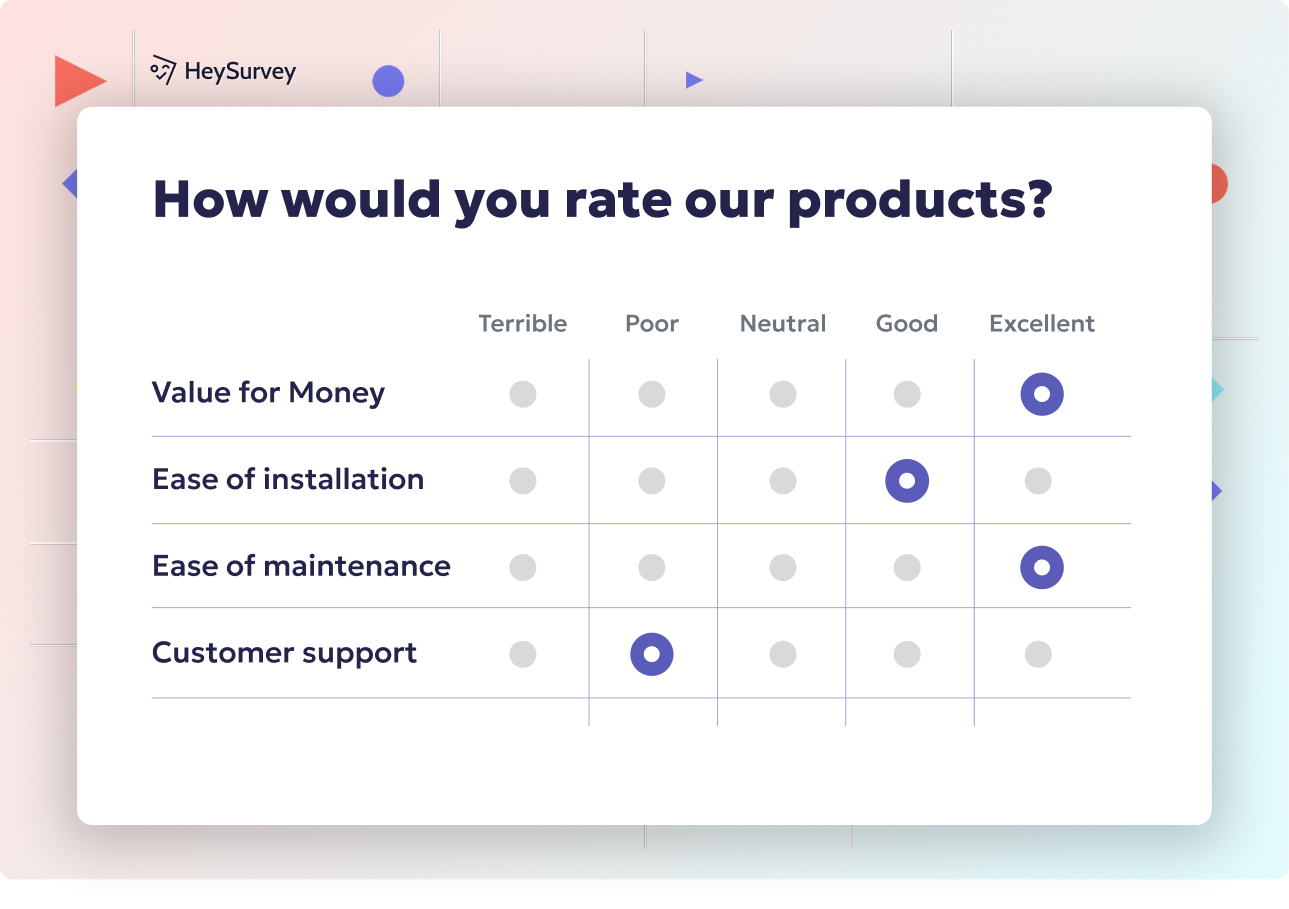
30 User Feedback Survey Questions for Better Insights
Discover 40+ user feedback survey questions across 8 types to boost product insights, UX, and cus...
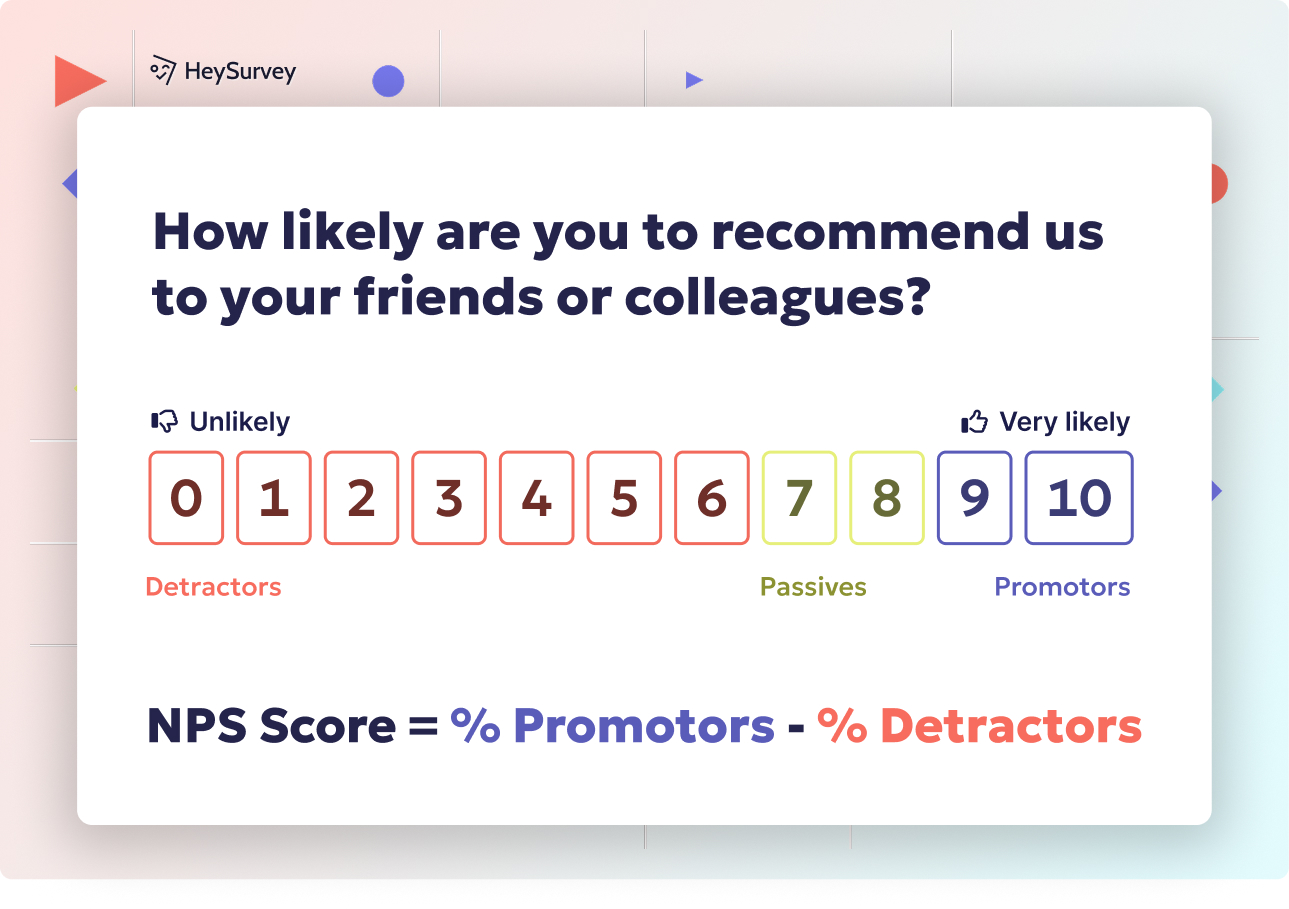
28 Environment Survey Questions to Measure Sustainability
Explore 25 environment survey questions to enhance your research—discover sample questions for ef...
